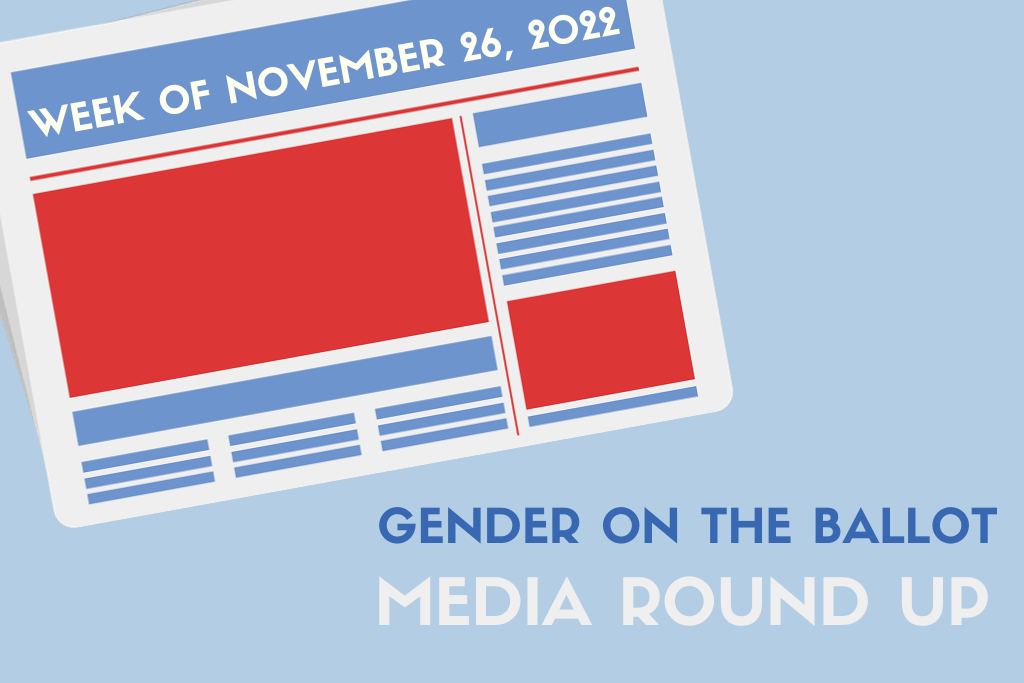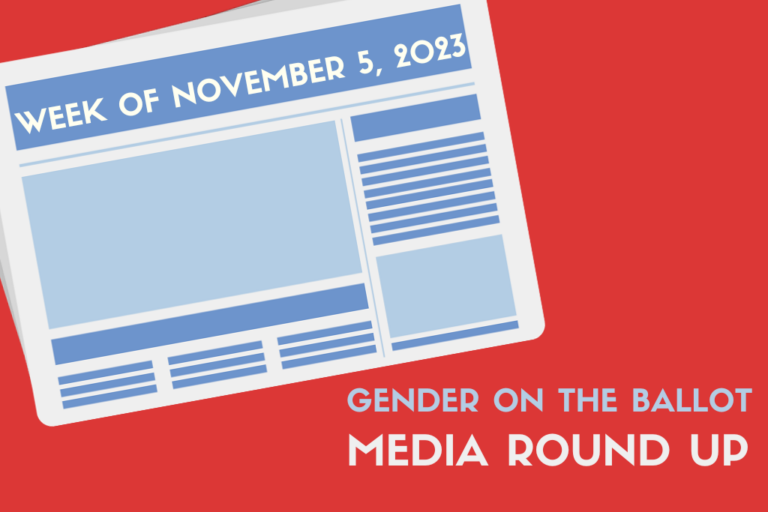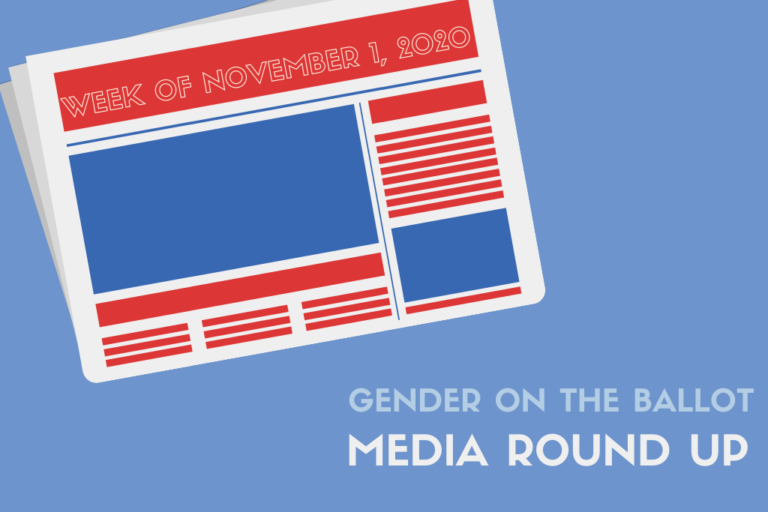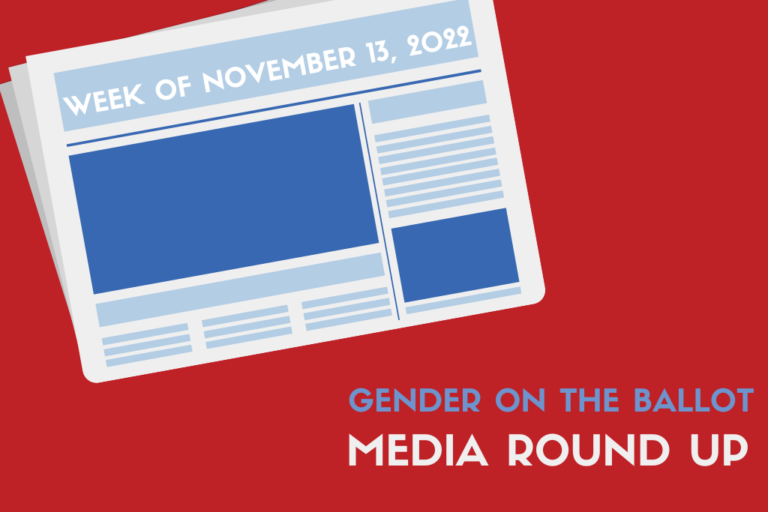Happy Friday! Welcome to our Media Round Up. Each week, we’re collecting and sharing…
Media Round-Up: Week of November 26, 2023

Happy Friday! Welcome to our Media Round Up. Each week, we’re collecting and sharing gender + politics stories. Here’s what caught our eye this week:
Sandra Day O’Connor, First Woman on the Supreme Court, Is Dead at 93
Linda Greenhouse, New York Times
Sandra Day O’Connor, the first woman to serve on the United States Supreme Court, passed away on Friday, December 1st in Phoenix, Arizona at the age of 93. Although her Stanford Law School classmate William H. Rehnquist served as chief justice during much of O’Connor’s tenure, the Supreme Court was often referred to as the O’Connor court and she was referred to as the most powerful woman in America. During her time on the Supreme Court, “… very little could happen without Justice O’Connor’s support when it came to the polarizing issues on the court’s docket …” O’Connor’s passing was announced by the Supreme Court in a statement which said the cause was complications from dementia.
Read the full story here.
Nikki Haley sprouts “grassroots army” overnight with Koch endorsement
Zachary Basu, Axios
On Tuesday, the Koch political network endorsed Republican Nikki Haley for the 2024 presidential election. Some consider this endorsement to be the most important of the GOP primary so far due to it signifying elite donors’ coronation of Nikki Haley as the most viable alternative to former President Trump. With this endorsement, “… Haley will unlock new access to influential donors, millions in ad spending, and massive ground operation that rivals that of the RNC. The endorsement could also aid Haley with two of the biggest vulnerabilities of her candidacy: grassroots organizing and foreign policy.
Read the full story here.
‘Nobody cared’: Women who have reported mistreatment while giving birth say CDC report validates their trauma
Devin Dwyer and Patty See, ABC News
Earlier this year, the Centers for Disease Control and Prevention launched an awareness campaign with a request for American health systems to be more respectful in providing maternity care. The CDC has previously noted that mistreatment during pregnancy and birth is not uncommon and is what may contribute to the nation’s maternal mortality rate – one of the highest among the richest countries in the world. When ABC News spoke with women across the country, they said the CDC’s awareness campaign which provides guidance to American health systems on how to be more respectful when providing maternity care was long overdue.
Read the full story here.
Putting more women in leadership roles won’t solve systemic inequity
Katica Roy, Fast Company
Studies have found that organizations struggle with gender diversity in leadership and those with a majority of men in leadership roles have trouble retaining in middle management, and this finding is not because these women exit the workforce. When women do occupy leadership positions, it signals to entry and mid-level women that they have a viable path to progress in their careers at a given organization. When deciding where to work, 61% of women look at the gender diversity of the employer’s leadership team. Fast Company asserts that while a company can hire your way to diversity, you cannot hire your way to inclusion and recruiting women and underrepresented talent is not the same as retaining them.
Read the full story here.
What the fight to expand access to the ballot for Native Americans looks like now
Grace Panetta, The 19th*
Set to play a pivotal role in key states in the 2024 presidential election and U.S. Senate contests, Native American, Indigenous, and Alaska native voters consistently faced barriers to voting. These barriers were detailed in a report in June 2020 called Obstacles at Every Turn by The Native American Rights Fund (NARF), an organization that provides legal representation and assistance for Native American groups and tribes. NARF has gone to court to challenge both new election maps and voting restrictions for discriminating against Native voters. Other barriers to voting that Native Americans face include “… a lack of voting sites and ballot drop boxes, creating long distances to travel to vote, poor road conditions, inadequate infrastructure and inconsistent broadband Internet access.”
Read the full story here.






